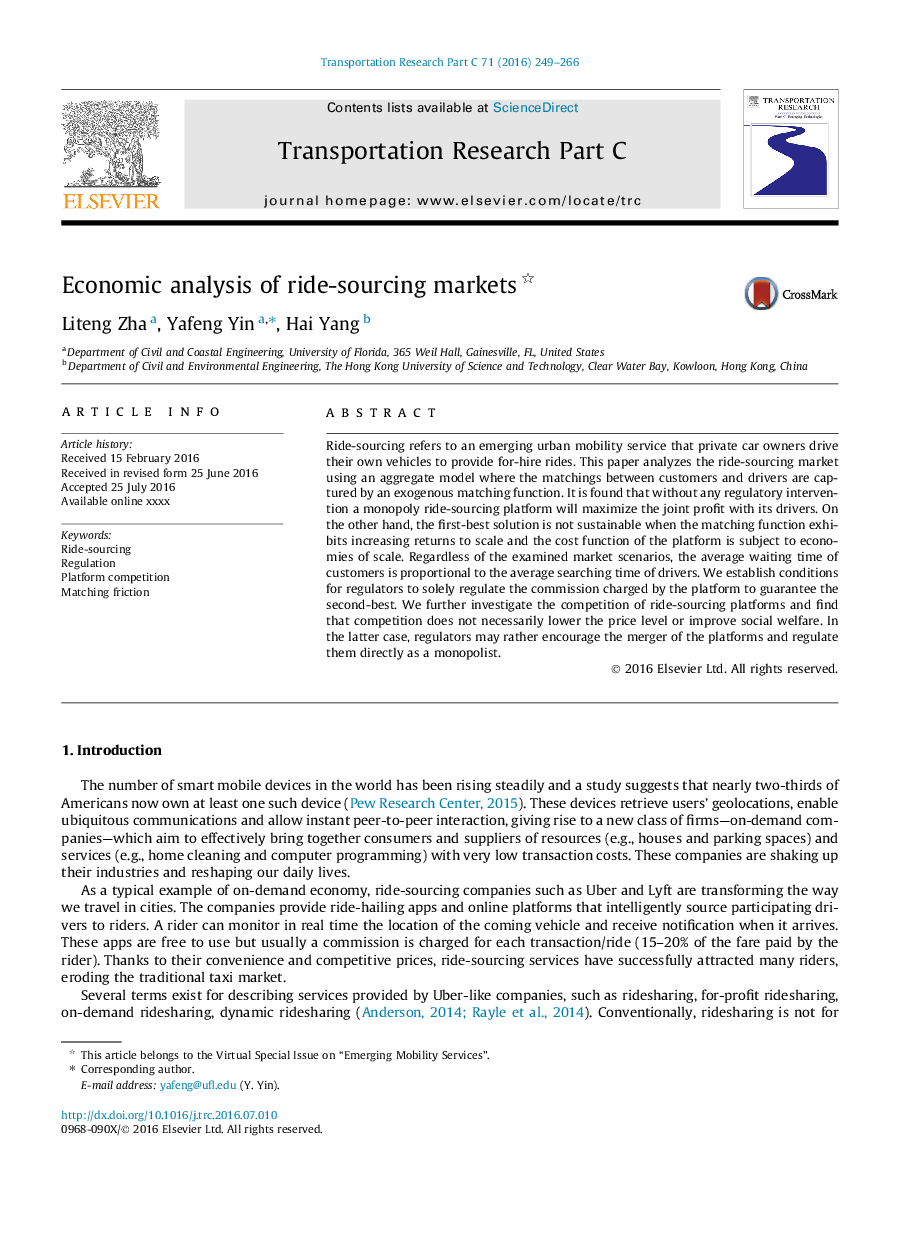| Article ID | Journal | Published Year | Pages | File Type |
|---|---|---|---|---|
| 6936323 | Transportation Research Part C: Emerging Technologies | 2016 | 18 Pages |
Abstract
Ride-sourcing refers to an emerging urban mobility service that private car owners drive their own vehicles to provide for-hire rides. This paper analyzes the ride-sourcing market using an aggregate model where the matchings between customers and drivers are captured by an exogenous matching function. It is found that without any regulatory intervention a monopoly ride-sourcing platform will maximize the joint profit with its drivers. On the other hand, the first-best solution is not sustainable when the matching function exhibits increasing returns to scale and the cost function of the platform is subject to economies of scale. Regardless of the examined market scenarios, the average waiting time of customers is proportional to the average searching time of drivers. We establish conditions for regulators to solely regulate the commission charged by the platform to guarantee the second-best. We further investigate the competition of ride-sourcing platforms and find that competition does not necessarily lower the price level or improve social welfare. In the latter case, regulators may rather encourage the merger of the platforms and regulate them directly as a monopolist.
Keywords
Related Topics
Physical Sciences and Engineering
Computer Science
Computer Science Applications
Authors
Liteng Zha, Yafeng Yin, Hai Yang,
